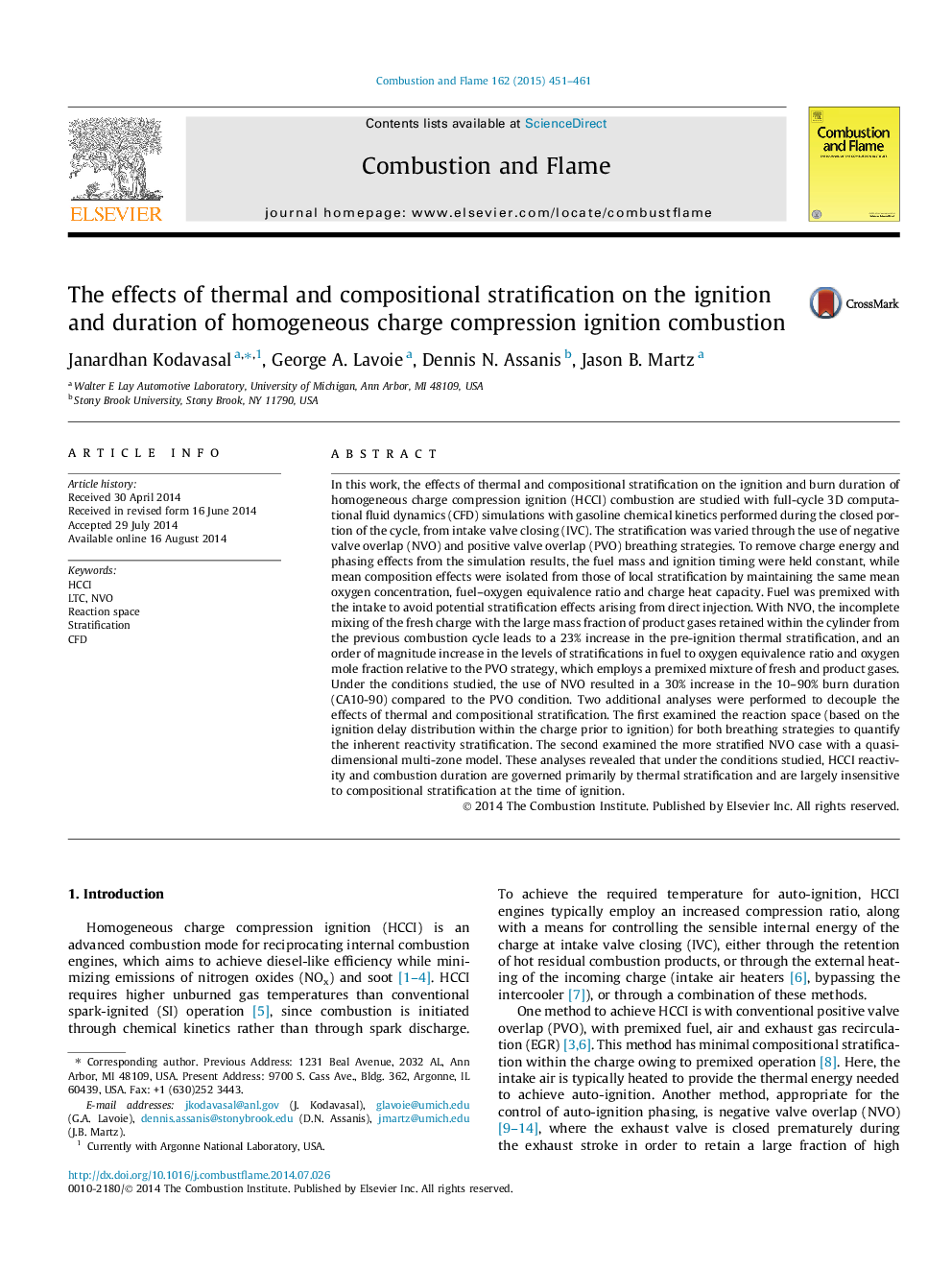| کد مقاله | کد نشریه | سال انتشار | مقاله انگلیسی | نسخه تمام متن |
|---|---|---|---|---|
| 168867 | 457957 | 2015 | 11 صفحه PDF | دانلود رایگان |
In this work, the effects of thermal and compositional stratification on the ignition and burn duration of homogeneous charge compression ignition (HCCI) combustion are studied with full-cycle 3D computational fluid dynamics (CFD) simulations with gasoline chemical kinetics performed during the closed portion of the cycle, from intake valve closing (IVC). The stratification was varied through the use of negative valve overlap (NVO) and positive valve overlap (PVO) breathing strategies. To remove charge energy and phasing effects from the simulation results, the fuel mass and ignition timing were held constant, while mean composition effects were isolated from those of local stratification by maintaining the same mean oxygen concentration, fuel–oxygen equivalence ratio and charge heat capacity. Fuel was premixed with the intake to avoid potential stratification effects arising from direct injection. With NVO, the incomplete mixing of the fresh charge with the large mass fraction of product gases retained within the cylinder from the previous combustion cycle leads to a 23% increase in the pre-ignition thermal stratification, and an order of magnitude increase in the levels of stratifications in fuel to oxygen equivalence ratio and oxygen mole fraction relative to the PVO strategy, which employs a premixed mixture of fresh and product gases. Under the conditions studied, the use of NVO resulted in a 30% increase in the 10–90% burn duration (CA10-90) compared to the PVO condition. Two additional analyses were performed to decouple the effects of thermal and compositional stratification. The first examined the reaction space (based on the ignition delay distribution within the charge prior to ignition) for both breathing strategies to quantify the inherent reactivity stratification. The second examined the more stratified NVO case with a quasi-dimensional multi-zone model. These analyses revealed that under the conditions studied, HCCI reactivity and combustion duration are governed primarily by thermal stratification and are largely insensitive to compositional stratification at the time of ignition.
Journal: Combustion and Flame - Volume 162, Issue 2, February 2015, Pages 451–461
